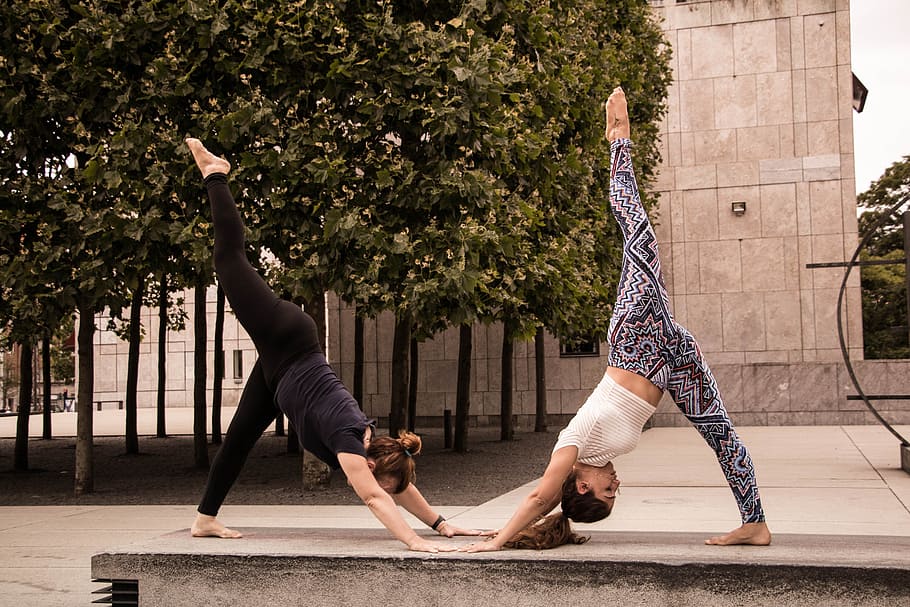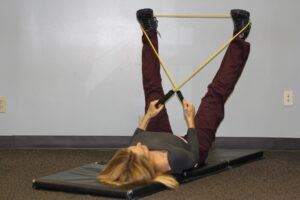When it comes to staying fit and healthy, our options are as vast as the great outdoors itself. Yet, while many of us picture exercise as a choreographed routine in the fluorescent-lit halls of a gym, the benefits of outdoor workouts are shining through like the morning sun. In fact, did you know that the simple act of taking your workout outside can amplify its positive effects on both your body and mind?
In this comprehensive exploration, we’re setting our sights on the myriad health advantages that await those who choose the open air as their gymnasium. Whether you’re an avid fitness buff, an outdoor enthusiast, or someone eager to jump-start a healthier lifestyle, this detailed guide will showcase why the outdoors is the perfect playground for your holistic well-being.
Physical Health Benefits of Outdoor Workouts
Increased Vitamin D absorption
Outdoor workouts offer a significant advantage over their indoor counterparts – they are a natural source of Vitamin D. This vital nutrient, often referred to as the “sunshine vitamin,” plays a critical role in maintaining strong bones, regulating the immune system, and improving mood. With just a few extra sunlit hours, you can experience a surge in Vitamin D levels that you simply can’t replicate indoors, contributing to overall health and well-being. So, next time you’re working out outside, remember to soak in some sun and let your body naturally absorb this essential vitamin.
| Aspect of Health | Role of Vitamin D | How Outdoor Exercise Helps |
|---|---|---|
| Bone Health | Essential for calcium absorption, vital for bone strength and structure. | Natural sunlight exposure increases Vitamin D production, crucial for bone development and maintenance. |
| Immune System Function | Boosts the immune system, reducing the risk of infections and autoimmune diseases. | Regular outdoor activities contribute to a stronger immune response via increased Vitamin D levels. |
| Mental Well-being | Linked to mood regulation and reducing the risk of depression. | Exposure to sunlight during outdoor workouts can improve mood and decrease the risk of depression. |
| Muscle Function | Important for muscle strength and coordination. | Outdoor exercises enhance Vitamin D levels, supporting muscle health and preventing weakness. |
| Cardiovascular Health | Plays a role in heart health and blood pressure regulation. | The combination of physical activity and sunlight exposure helps maintain a healthy heart and circulatory system. |
Enhanced Air Quality
Another notable benefit of exercising outdoors is the improvement in air quality you’re likely to experience. Indoor air can be up to five times more polluted than outdoor air due to limited ventilation, according to environmental experts. When you take your exercise routine outside, you are breathing fresher air that is often less contaminated with pollutants, which can lead to better respiratory health and improved overall physical performance. This is especially true in areas filled with greenery, such as parks or nature trails, where plants help filter the air, providing a cleaner and more oxygen-rich environment for your workouts.
Natural Terrain Challenges
Outdoor environments naturally offer varied terrains and landscapes, which can introduce beneficial challenges to your workout routine. Unlike the flat surfaces commonly found indoors, the uneven and unpredictable nature of outdoor terrains like trails, hills, and beaches forces your body to engage different muscle groups, enhancing your balance, strength, and agility. This variability ensures a more comprehensive workout, challenging your body in ways that a gym environment might not be able to replicate. Plus, the dynamic nature of outdoor settings can make your exercise sessions more stimulating and less monotonous, encouraging you to push your limits and enjoy working out.
Enhanced Cardiovascular Health

Exercise improves the muscles’ ability to pull oxygen out of the blood, reducing the need for the heart to pump more blood to the muscles
Exercising outdoors immerses you in fresh air, natural beauty, and enhances cardiovascular health. Workouts on hills, trails, or beaches boost heart efficiency, improve blood circulation, and reduce heart disease risk. Varying intensity levels outdoors stimulate the heart more than indoor gyms. Natural resistance from wind and terrain makes the body work harder, improving heart health and endurance. Outdoor activities also reduce stress, enhance mood, and benefit cardiovascular well-being holistically.
Improved muscle strength and endurance
The uneven surfaces and natural obstacles of outdoor environments engage a broader spectrum of muscles than traditional gym workouts. Uphill sprints, climbing rocks, or navigating trails can lead to a full-body muscular enhancement, with a focus on stability, which is often overlooked in standard gym routines. The result? Improved muscle strength and endurance that prepare you for the physical demands of everyday life.
Enhanced Sleep Quality

The connection between outdoor exercise and better sleep quality is crystal clear, just like the night sky! Getting active in nature not only pleasantly tires the body for a good night’s rest but also syncs our inner clock with the natural light-dark cycle, enhancing our sleep patterns. Here are some tips for weaving outdoor activities into your routine to tap into nature’s rejuvenating power for improved sleep:
- Morning Boost: Kick off your day with a refreshing morning stroll or jog. Basking in the early sunlight helps tune your body’s sleep-wake rhythm, encouraging earlier bedtime and more soothing nights.
- Evening Chill: Wind down with mellow outdoor activities in the evening, like serene yoga or a leisurely walk. Steer clear of intense exercise before bedtime, as it can revitalize the body and hinder falling asleep.
- Routine Harmony: Stick to a consistent schedule for your outdoor workouts. Regularity reinforces your body’s natural sleep cycle.
- Unplug for Zen: Utilize your outdoor workout time to disconnect from gadgets. The natural surroundings aid in decluttering the mind, paving the way for improved sleep quality.
Mental Health Benefits
Reduced Stress and Anxiety
Nature has this amazing way of calming our minds and reducing stress levels. Studies show that just being in nature can really boost our mental well-being by promoting relaxation, easing anxiety, and lowering cortisol levels (the stress hormone). When you add in some outdoor activities that get your body moving, you’ve got a winning recipe for managing stress and improving your overall health. Taking in the sights, sounds, and smells of the natural world can bring such a peaceful and refreshing feeling, like a little oasis for your mind and heart.
Increased Mood and Energy Levels
The amalgamation of breathing in fresh air, being surrounded by nature’s beauty, engaging in physical activities, and soaking in the sunlight has been scientifically validated to elevate both mood and energy levels. Outdoor workouts offer not just a refreshing change of scenery from the confines of an indoor gym but also foster an atmosphere that triggers the release of endorphins – those delightful “feel-good” hormones that work wonders for enhancing mood and overall well-being. This natural euphoria can serve as a powerful motivator, inspiring you to engage in more physical exercise and adopt a lifestyle that promotes increased health and happiness.
Improved Focus and Mental Clarity
According to recent scientific studies, immersing oneself in natural surroundings has been shown to significantly enhance focus and mental clarity. The serene tranquility of outdoor settings creates an ideal environment for cultivating mindfulness during exercise sessions, enabling individuals to synchronize their mental presence with physical movements without the interference of external distractions. Moreover, engaging in physical activities outdoors introduces a refreshing change of scenery from the repetitiveness of indoor workouts, promoting mental stimulation and sustained interest. Consequently, this heightened cognitive engagement leads to a notable enhancement in overall cognitive function and mental acuity.
Accessibility and Inclusivity
Suitable for all fitness levels
The great outdoors acts as a free gym open to all! No matter your age or fitness level, you can enjoy the benefits of outdoor workouts. This setting lets you customize intensity and duration, perfect for beginners and offers variety for seasoned athletes. With fresh air, nature’s beauty, and flexibility in routines, outdoor exercise becomes a fun and fulfilling fitness journey for everyone!
Cost-effective and convenient
An outdoor workout regimen is as simple as stepping outside your front door. There are no monthly dues, and the only equipment you really need is a good pair of shoes. That means there’s no barrier to entry for anyone looking to adopt a healthier lifestyle or maintain their fitness without the added expenses and time commitments associated with the gym.
Overcoming gym limitations
Gyms, no matter how well-equipped, can’t offer the vastness and variety of natural outdoor settings. These limitations result in repetitive workout routines that can lead to fitness plateaus and boredom. In contrast, the outdoors constantly challenges your body with different terrains, climates, and elements, making every workout unique.
Common Barriers to Outdoor Workouts
Weather and seasonal limitations
One of the most common deterrents to outdoor workouts is the weather. Extreme temperatures, rain, or snow can be significant barriers to exercising outside. However, with proper clothing and the right mindset, these challenges become opportunities to experience different conditions and heighten the benefits of your workout.
Safety and security concerns
Many individuals cite fears about the safety of outdoor environments, particularly when working out alone. But with a few simple precautions—such as informing others of your route, staying in well-populated areas, and carrying a charged phone—these concerns can be mitigated, ensuring a safe and enjoyable exercise session.
Motivation and self-discipline
It can be harder to find the intrinsic motivation to work out when your gym is out of sight. A lack of structured class schedules or trainer-guided workouts may lead some to skip exercising altogether. However, developing a routine and setting tangible, achievable goals can help in maintaining your outdoor fitness regimen.
Tips for Effective Outdoor Workouts
Choosing the right location and time
The golden hour of morning sunlight or the calming effect of an evening breeze can make all the difference in your workout. Time your outdoor exercises to coincide with the times that best suit your well-being. Choose locations that inspire you and provide enough room to engage in your planned activities comfortably.
Safety considerations
Sunscreen, hydration, and protective gear are must-haves for outdoor workouts. Ensure you’re well-prepared for the elements, and always carry appropriate supplies, like a first-aid kit. Knowing your limits and not pushing yourself too far past them is also crucial to a safe and enjoyable workout.
Incorporating variety and challenges
One of the best aspects of outdoor workouts is the constant element of surprise. Use the varied landscapes to your advantage by changing up your routines often. Trail running one day, cycling the next, and perhaps even attempting a bit of wild swimming can keep your workouts exciting and ensure you never hit a fitness plateau.
Some Mindful Outdoor Exercises
Including some mindful outdoor exercises in your workout routine can enhance the mental and physical benefits of exercising outdoors. These exercises focus on connecting with nature, staying present in the moment, and slowing down to appreciate the beauty of our surroundings.
Yoga or Pilates
Practicing yoga or Pilates outside allows you to connect with nature while engaging your mind and body in a mindful workout. The natural elements add an extra challenge to your practice, and the peaceful atmosphere can help you reach a deeper state of relaxation.
Outdoor meditation
Find a quiet spot outdoors to sit or lie down, close your eyes, and focus on your breath. Let the sounds of nature be your guide as you let go of any thoughts or distractions and simply exist in the present moment. This simple exercise can reduce stress and anxiety, improve focus and increase overall well-being.
Forest bathing
Also known as “shinrin-yoku,” this Japanese practice involves immersing yourself in a forest environment to promote relaxation and reduce stress. Walk slowly through a natural setting, taking in the sights, sounds, and smells of the forest. This mindful activity can have significant benefits for your mental and physical state.
Tai Chi in Nature
Tai Chi is a slow, meditative form of exercise that can have profound effects on both the body and mind. Take your practice outdoors to connect with nature and experience the added benefits of fresh air and natural surroundings.
Group Fitness in Nature: Social and Mental Well-being

Outdoor group fitness activities offer not just physical exercise benefits, but also cultivate a strong sense of community and emotional support crucial for mental well-being. By engaging in physical activities together amidst the beauty of nature, individuals can experience:
- Improved mental health from the shared experiences and mutual support gained through group fitness sessions.
- Increased motivation and accountability, as the group environment promotes consistency and pushes individuals to put in effort.
- Enhanced social connections that help combat feelings of loneliness and isolation.
- A profound sense of belonging and community, which significantly contributes to overall happiness and life satisfaction.
- The added delight of diverse workout routines, as group settings often introduce a variety of activities that make fitness sessions more interesting and engaging.
Balancing Nature and Urban Fitness
For many living in urban areas, finding a balance between the convenience of city life and the benefits of nature can be challenging. However, incorporating outdoor workouts into an urban lifestyle is not only possible but also highly beneficial for both physical and mental health. This section offers insights and tips on how city dwellers can embrace outdoor exercises to enrich their fitness routines and well-being.
Finding Your Green Space
Urban environments often offer hidden gems in the form of parks, river paths, and greenways that provide a perfect setting for outdoor workouts. Identifying these areas within your city can be the first step toward integrating nature into your fitness regime. Even small parks can offer a significant mental boost, serving as green oases amid the concrete jungle.
Maximizing Urban Opportunities
Cities offer unique opportunities for outdoor workouts that combine the benefits of physical exercise with the sensory experiences of an urban landscape. Activities such as running, cycling, or even outdoor group fitness classes can be adapted to urban settings, providing a dynamic and stimulating environment for exercise. Exploring different neighborhoods on foot or by bike can also add variety to your workouts and allow you to discover new aspects of your city.
Creating Your Own Outdoor Routine
For urban dwellers, creating a routine that includes outdoor workouts can involve a mix of creativity and flexibility. Utilizing rooftops, balconies, or even open spaces in public squares for yoga, tai chi, or bodyweight exercises can offer a fresh perspective on fitness. Additionally, commuting by bike or walking can incorporate physical activity into your daily routine while also providing exposure to outdoor environments.
Community and Social Connection
Participating in outdoor fitness groups or community sports leagues can enhance the social aspect of exercise, providing motivation and a sense of belonging. Many cities offer outdoor fitness classes or running clubs that not only promote physical health but also foster connections with others who share similar interests, enhancing the overall urban outdoor workout experience.
The Importance of Adaptability
Adapting to the urban environment means being flexible with your workout locations and times. Early morning or later in the evening can offer quieter times to enjoy outdoor activities, while also experiencing the city from a different perspective. Seasonal changes may require adjustments to your routine, but they also offer opportunities to experience the diverse aspects of urban nature throughout the year.
Author’s Experience of Outdoor Workouts
During my early days of exploring outdoor workouts, I vividly remember the first time I decided to swap the monotony of the treadmill for a local park trail. As someone who had always struggled with motivation in traditional gym settings, the transformation was immediate. The greenery and fresh air were invigorating, but more importantly, I felt a sense of freedom and connection with nature that I had never experienced during a workout. That initial run in the park, which I had expected to be shorter than my usual gym sessions, turned into a journey of self-discovery and a newfound love for the outdoors. This personal anecdote highlights not just the physical benefits of outdoor workouts, but also the profound impact they can have on our mental well-being and the joy they can bring to our fitness routines.
Frequently Asked Questions (FAQs)
Outdoor workouts offer a range of benefits including improved mental health, enhanced vitamin D intake, better sleep quality, increased cardiovascular health, and a unique opportunity for strength training and mindfulness practices.
Natural settings can reduce stress, enhance mood, and lower anxiety levels through the calming effect of nature and the endorphin release associated with physical activity.
Yes, regular physical activity in natural light helps regulate your body’s circadian rhythm, leading to better sleep patterns and quality.
Absolutely. Vitamin D plays a critical role in bone health, immune function, and mood regulation. Outdoor exercise is a great way to naturally boost your vitamin D levels.
While all forms of outdoor exercise offer benefits, combining cardiovascular activities, strength training, and mindfulness exercises like yoga or tai chi can provide a comprehensive health boost.
Start with short sessions, even just a 10-minute walk during a break, and gradually increase. Plan outdoor activities that you enjoy and will look forward to doing.
Look for local parks, river paths, or community gardens. Even small green spaces can provide a natural setting for your workouts and offer the benefits of outdoor exercise.
Yes, participating in group fitness activities outdoors can significantly enhance social interactions, foster a sense of community, and improve mental well-being through shared experiences.
Final Words
The call of the outdoors is a compelling one, and the benefits of answering it with a workout are both wide-ranging and deeply rooted in our well-being. Whether it’s the cardio-boosting effects of trail running, the peacefulness of a yoga session on the beach, or the joy of a brisk walk through a city park, outdoor exercise can be a transformative addition to your fitness routine.
By shedding light on the advantages of outdoor workouts for both physical and mental health, we hope to inspire a shift in your approach to exercise. The gym may have its place, but the world outside its walls offers a boundless opportunity to reach your health and fitness goals in a way that resonates with your soul.
It’s time to lace up your shoes, breathe in the fresh air, and step into the great outdoors. Your body and mind will thank you for it.








